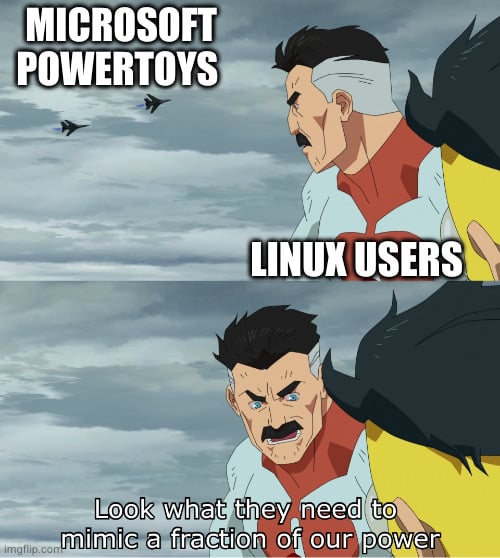Notepad++ - This piece of software is a very advanced form of Notepad. Fuck that basic Notepad shit that Windows or any other OS gives you. This one is all you’ll ever need for basic note-taking needs. But it does a hell of a lot more. One thing I love about it is that, if for any reason I put my PC to sleep, it crashes, power outage, I can run this again and everything I’ve ever written and no matter how many tabs - it’s all retained.
AIMP - The definitive media player that you’ll ever need for just playing stuff (music only, sorry if I mislead those thinking it can do video). Winamp and all the other software are just around for nostalgia (though Winamp has it’s uses where you need it to play specific formats like video game music such as SNES with .SPC). One feature that attracted me to it was, it used to infuriate me when I am playing something and something crashes in any other media player. And you boot up that media player and you have to play your playlist all over again or that song from the beginning.
Not AIMP, if I accidentally close it, crash or whatever, I can bring it back up and it’ll have the song or whatever on Pause so I can resume. Why isn’t shit like this more implemented in software?
“Everything” - find any file on your machine instantly. No need to update an index, it uses the NTFS master file table directly.
It is my pet peeve that instead of using the MFT, they gave us the bloody abomination they call windows search.
I mean, make it a hidden tool like regedit, for all I care. It’s really not that hard.
Microsoft made NTFS, but not even Windows uses it properly. For example, the
:character is perfectly valid in NTFS file names, but not in Windows. If you mount an NTFS volume in Linux without specifying thewindows_namesoption, you can very easily make it unusable in Windows. It’s a sick joke, but nobody’s laughing.Hey, to be fair, ‘/’ and the null character are the only illegal character for file names on Linux (which is a blessing AND a curse)
Is that because it indexes the contents of files? (or pretends to.)
This my top-used non-windows-component bestest utility for finding info on my pc. It’s da bomb!
I find it almost criminal the amount of people who do not know about this. Absolute life saver for work.
Wizfile as an alternative to this which I prefer
Also Wiztree from the same devs as a WinDirStat alternative
Love them. Though, WizFile occasionally starts eating up a lot of CPU on my machine until I force close it.
Note that there’s a severe vulnerability that was only patched very recently in 7zip. I’ve seen recommendations to fully uninstall it and then reinstall the latest version.
Report: https://nvd.nist.gov/vuln/detail/CVE-2024-11612
7-zip doesn’t have an integrated installer so yes you have to uninstall the old version and install the new one.
Paint.NET has filled a “I need an image editor with some packed in features that isn’t as complicated as Photoshop for some quick work” niche for me for years. From simple crops and edits to some layer-and-effects work.
I did not know Aseprite was free if you compile it but they deserve the money anyway.
Oh, I forgot one. If you actually need something a bit more like Photoshop, I can recommend Photopea as well. It’s online but it runs locally and it has some ads on the side, but it beats getting an Adobe Cloud license.
Paint dot net has layers, rotation, magic wand, and layers. The Editable Text plugin completes my amateur photo editing requirements. And no bloatware! No spyware!
Pixelorama is completely free and is a pretty good alternative to Aseprite
If you want something efficient and free of bullshit you probably first need to change your OS to a GNU/Linux distro
“Free, efficient, no bullshit” is kind of the default for Linux software.
not unless you count UX as partof the “efficiency”. A lot of oss software has top-notch functionality, but horrible ux
Yeah that front still needs improvement, but I will say things have gotten a lot better, especially in the past 5 years. Regardless of personal opinion on their approaches, projects like GNOME, Inkscape, GIMP, KDE (sort of, the settings app is still confusing as hell), even Blender’s recent UI updates have been pretty solid. There’s still a lot of room to improve though, and plenty of older software still hasn’t seen much of its UX addressed.
I don’t think this is generally true at a higher rate than for any other software. Multi-billion dollar companies will have more polished UX, but step outside of the major flagship apps and things quickly degrade. Even the best in the business have plenty of problems, you can’t design a perfect UX that will please all users.
I did consider posting a screenshot of just all the applications on my PC… 🙃
But yeah, not much OP can do with hundreds of recommendations that don’t work on their OS.
KeePassXC, or any kind of KeePass-compatible client. It uses strong encryption to store passwords, passkeys, and arbitrary data. Also does TOTP. Not using a password manager in current year is stupid.
QOwnNotes - a note-taking app that uses plain markdown files. None of that stupid metadata-inside-markdown-inside-database bullshit.
I can confirm both these. Although Qownnotes is a bit of mess in UI, it does its job well. I wanted something simple that will just load bunch of locally saved md files and this is the best I could find so far.
If you want a similar markdown editor, Obsidian does much the same, but with a much nicer single-panel UI. The client is free (as in no-cost), but closed-source.
I’m kind of hesitant with it since it’s not FOSS. To be honest I never really understood why anyone makes free (no $$) software but not open source it. I might give it a try though.
There’s Zettlr & Logseq Or… you use Org-Roam/Org-Agenda in Emacs to get a 2nd brain functionality
I’ve tried both and did not like either. Logseq would be probably ok if it didn’t sort every note as a bullet list.
Zettlr was veeery slow for me.
Obsidian also operates a paid cloud storage and public hosting service. Releasing the client for free is a way to gain good publicity and hook new customers, but making it open-source (or even nonfree source-available) would make adapting it to a different storage service trivial, which would hurt Obsidian’s business.
It works well with syncthing…
Well, yes, but also no. There are other similarly strucuted SW that can survive even though they’re open sourced. Things like Standard Notes, Notesnook, Stingle photos, etc. I believe most people would go hassle free route if the accompanying “cloud service” were good enough. And FOSS sticker is a good bonus on top. Just my 2 cents.
VLC. If it can’t play it, nothing can.
Perhaps MPV can, if VLC can’t. I much prefer MPV over VLC.
Is a part of me that wants to go back to Linux just for Mplayer. That blows VLC and mpv out of the water. You could watch movies on a potato with that
If vlc fails , ffplay via way of ffmpeg should, if THAT fails, you are going to have a tough time
Pretty sure VLC is built on top of ffmpeg but I could be wrong
yes, both vlc and mpv use libffmpeg, but they sometimes have different support because of different version, or while compiling, they may enable/disable some optional bits
Kinda, vlc uses libavcodec, which ffmpeg also exposes via CMD line, ffplay is a very very stripped down player, and handles a much wider scope of video than vlc does, for a multitude of reasons.
LocalSend - like AirDrop, but cross platform
LocalSend is just so effortless and good! I love it.
Nice suggestion!
2nded
Been using this for a few weeks now, and it is really fucking convenient
yt-dlp can download videos from most sites. Comes with a lot of advanced features if you need them.
Lots of great software already posted, but with some complaints about windows inefficiencies I can’t believe no one has posted:
Microsoft PowerToys https://learn.microsoft.com/en-us/windows/powertoys/
Basically, it’s a suite of tools that windows devs have made to make their lives easier while working in windows. Some features have made it into actual windows releases over the years, but most not.
It has an always on top, batch rename, customisable window snapping, better search, keyboard key remapper, mouse across multiple devices, colour eyedropper, and many many more.
Absolute must have for anyone that uses windows regularly.
keyboard key remapper
Specific example: the caps lock key is useless and only ever activated on accident when I fat-fingered the A key. Remapped it to F-13 which exists as a kind of place holder with no function since keyboards stop at F-12; then set F-13 as my push-to-talk key in Discord, so now I’ve got a super conveniently located PTT that won’t disrupt anything (like switching to aLL CAPS WHEN I INEVITABLY MISS THE A KEY).
Small change, absolutely love it. 10/10
I can tell you aren’t a
viuser because you would’ve remapped it toctrl.I’m a vi user that maps it to Esc
Ah, right.
I’m an emacs user, so that’s why I didn’t remember the vi bindings accurately.
I’m a vi user that maps it to backspace (also the Colemak-DH default)
I used caps as escape for a while, but then I switched to the Colemak-DH layout which uses it as backspace and I like that even more.

Gnome tweaks:

I use Libre Office as a word and excel replacement. Might not be a replacement for everyone if perfect compatibility/formatting is needed for work, but for personal use it’s been great.
It works great but I was heartbroken when I saw it ruined my beautifully formatted resume that was a .docx :(
Use markdown instead.
FLOSS games that are solid:
Shattered Pixel Dungeon
Luanti (aka Minetest)
sgt-puzzles
SuperTuxKart is a cool one
Sure is! It’s had so much work done since the early days.
The single player campaign is huge and hilarious. Very satisfying to complete.
Glaring omission: OpenTTD, still in contention for the greatest train (and other transport) game ever made.
Looks so good. I haven’t tried city-sims in 30yrs.
I just watched this drokkin excellent overview of what is possible in OpenTTD. Very polished.
I am sure it can be played as a serious endeavor too.
Shattered Pixel Dungeon
This has been the only version of the game I’ve ever gotten close to beating. For that reason alone it’s worth mentioning.
Yes, I also tried the original Pixel Dungeon one time. Crazy hard mode.
For tips, hide behind doors for as many strikes as possible.
Try to enhance a Glaive with speed, from the Stone of Augmentation(stay with staff for mage). Then upgrade and add a glyph. Plate armour up to +4-6.
For tips, hide behind doors for as many strikes as possible.
I’ve definitely ‘abused’ the hell out of that. But at a certain point with the original, it seems like all the little tricks I learned hit an upper limit to their usefulness.
The original was just brutal.
Try to enhance a Glaive with speed, from the Stone of Augmentation(stay with staff for mage). Then upgrade and add a glyph.
I’ll definitely have to give that a try next time.
I tried for a day or 2 to get strafe-running, could not do it.
Would love to play Xonotic though, it has lots of old-school FPS flavour.
Strafing and moving mouse will make you turn faster, strafing with forward and moving mouse will accelerate you faster. You can see it on strafing bar.
Also read the guide: https://xonotic.org/guide/#bunny-hopping
And I recommend you to join xonotic-relax.ru discord server. It is most active xonotic community, and we do speak English when needed.
deleted by creator
No one mentioned SolveSpace, so… SolveSpace. Solvespace is a fully functional 3D parametric CAD solver in a free, cross-platform, open-source, portable, single self-contained executable 10 MB file.
I do a fair amount of hobby 3d printing and SolveSpace makes design and CAD stupid easy. The interface is perfectly laid out, the hotkeys are intuitive, and the capabilities make small-scale projects a breeze.
Now, the program has its limitations, but if I just want something quick and simple, there is nothing better.
SolveSpace… I remember that. Interesting thing, but I ended up using FreeCAD.
I’ve been using FreeCAD, it’s extremely powerful, and just hit 1.0. Might be a bit harder to learn, but worth it.
Yeah, FreeCAD is great, but I can only think of one project that I’ve done where SolveSpace absolutely could not work for the geometry I needed and I had to rebuild it in FreeCAD. But that’s just a product of what I am building: simple things like brackets, knobs, and replacement lids mostly. I don’t need chamfers, drafts, lofts, etc. and I get what I need with minimum of time and effort using SolveSpace.
When I do need those features, complex geometries, or modification of pre-built step files, FreeCAD has never failed me.
Davinci Resolve - Video Editing
Blender - 3D Modelling
Darktable - Photo Editing
Keira - Digital Art
Are some I use frequently.
Not only is Resolve’s free version amazing, the paid version is even better. And it has a reasonable, one time, upfront cost that gives you lifetime access.
Did you mean Krita instead of ‘Keira’?
Well !foss@beehaw.org and !linux@programming.dev for more, but off the top of my head:
Linux, VLC, FFMPEG, HandBrake, KDE (everything KDE), qBittorrent, Momentum (Flipper0 firmware), CHIRP, Vim, and more!
Had to scroll THIS far to see FFMPEG? Shame, shame.
Ah yes, gotta download “Linux” for myself.
I’d just like to interject for a moment. What you’re refering to as Linux, is in fact, GNU/Linux, or as I’ve recently taken to calling it, GNU plus Linux. Linux is not an operating system unto itself, but rather another free component of a fully functioning GNU system made useful by the GNU corelibs, shell utilities and vital system components comprising a full OS as defined by POSIX.
Many computer users run a modified version of the GNU system every day, without realizing it. Through a peculiar turn of events, the version of GNU which is widely used today is often called Linux, and many of its users are not aware that it is basically the GNU system, developed by the GNU Project.
There really is a Linux, and these people are using it, but it is just a part of the system they use. Linux is the kernel: the program in the system that allocates the machine’s resources to the other programs that you run. The kernel is an essential part of an operating system, but useless by itself; it can only function in the context of a complete operating system. Linux is normally used in combination with the GNU operating system: the whole system is basically GNU with Linux added, or GNU/Linux. All the so-called Linux distributions are really distributions of GNU/Linux!
How do you know they don’t refer to Alpine Linux?
Why are you interjecting to me?
It’s a copypasta
Sure, but why are they pasting it to me?
If you must know, it’s because I listed “Linux” rather than listing every distro by name, and your comment “oh I’ll just download linux” as if you can’t download a linux distro which is foss and based on the foss linux kernel, seemed just as pedantic to me as the copypasta, and so my immediate reaction, which I’d argue was natural and hilarious, was “haha copypasta time.”
But why male models?
You’re so right about KDE, I didn’t realize just how much great stuff KDE makes until I was looking for a markdown editor this week at work, and KDE ghostwriter nails everything I ever wanted. Cross platform too so I can use it on my personal Linux machine too
Wireguard, I find it both simpler and easier to use than OpenVPN.
dd. No other iso writing utility has worked as consistently, even if my usb devices would gain weird glitches after using it.
Believe it or not I am a person who goes out of their way to avoid using the terminal, so this is very much vouching for the software itself rather than the ux it’s based on.
TestDisk and PhotoRec. TestDisk can recover broken drive partitions, PhotoRec can recover deleted files even if the partition table is borked.






















